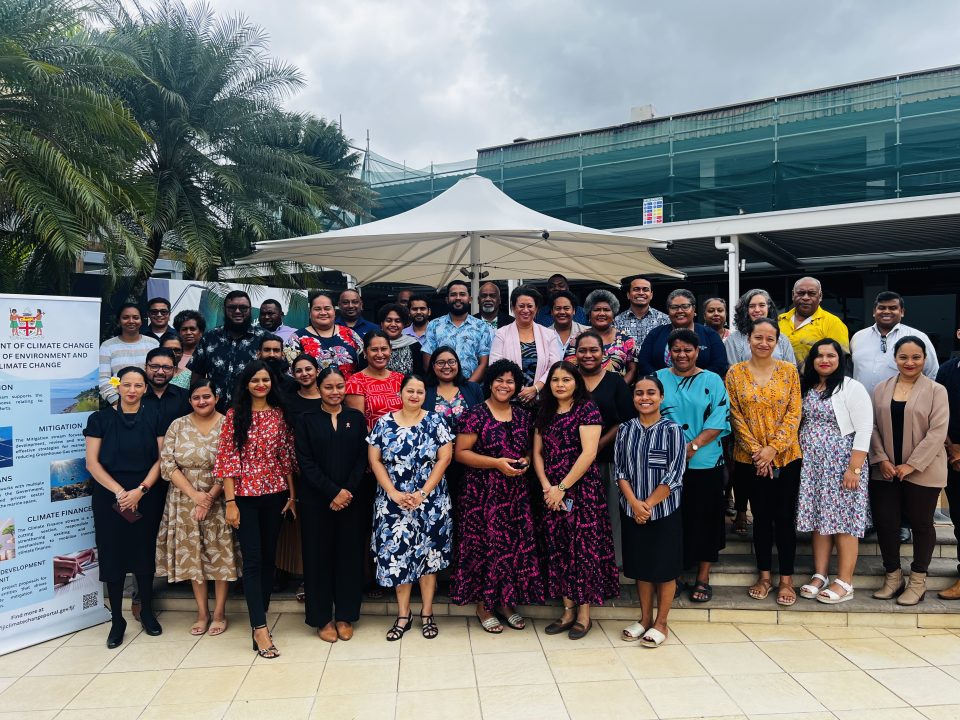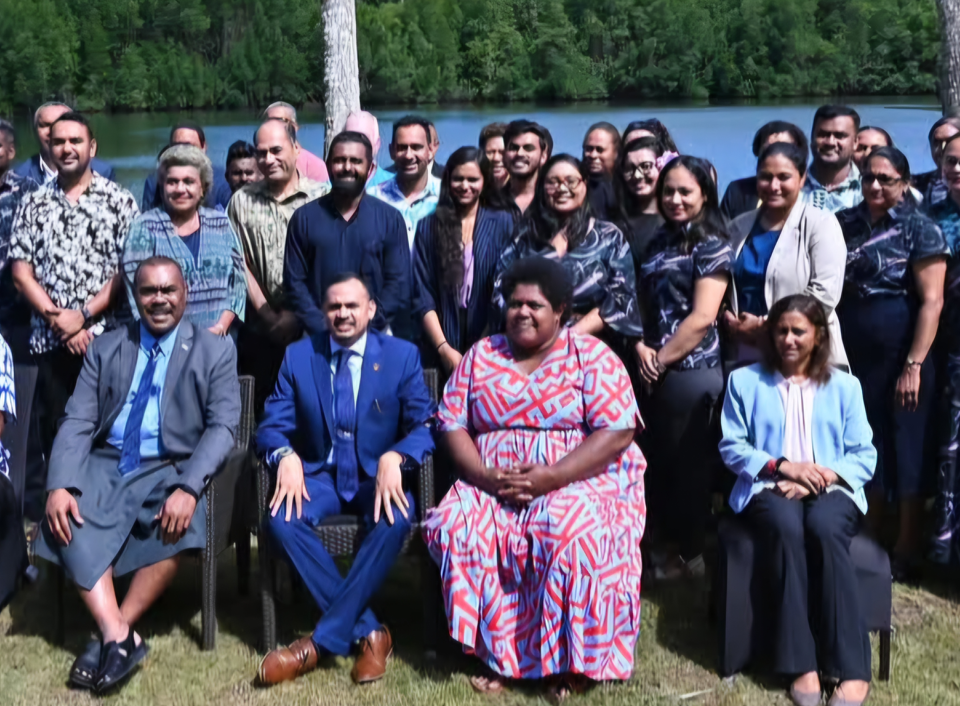
Quality Assurance of the National Greenhouse Gas (GHG) Inventory Management System and National Greenhouse Gas Inventories
21/03/2024
Fiji’s Institutional Arrangements for Climate Change Reporting Workshop and Tripartite Memorandum of Understanding on GHG and MRV Curriculum
27/03/2024The Climate Change Division of the Ministry of Environment and Climate Change organized a validation workshop on Fiji’s Draft National Carbon Market Strategy Roadmap on 25 March 2024 at the Holiday Inn, Suva. The workshop was opened by the Permanent Secretary of the Ministry of Environment and Climate Change, Dr. Sivendra Michael, First Secretary Climate Change and Humanitarian, Ms. Niamh Dobson of the Australian High Commission, and CEO of the Carbon Market Institute, Mr. John Connor. The Government of Australia through the Carbon Market Institute provided technical assistance to support the consultation process and development of the draft roadmap.
The Draft National Carbon Market Strategy Roadmap has been developed by the Climate Change Division through consultative process spanning 18 months involving multi-stakeholder workshops, webinars, small group consultations, case study development, and research. The Fiji National Carbon Market Strategy Roadmap aims to identify key considerations, engagement options and primary actions required to enhance Fiji’s ability to access and utilise appropriate carbon market mechanisms to support national climate change mitigation and adaptation priorities, increase investment in sustainable development, and enhance environmental and social integrity.
Greenhouse gas emissions drive global warming and climate change and efforts must drastically increase globally to keep global average temperature rise below 1.5 Degrees Celcius. Carbon markets value activities that reduce carbon emissions and increase nature-based carbon removals. International carbon markets help to facilitate investment in activities that reduce the amount of carbon in the atmosphere in exchange for carbon credits. In simple terms, a carbon market is a specialized type of financial market, through which carbon credits can be bought and sold. Companies or individuals can use carbon markets to offset their greenhouse gas emissions through the purchase of carbon credits from entities that remove or reduce greenhouse gas emissions.
In the opening of the workshop on the 25 March, Dr. Sivendra Michael stated in his opening remarks that, “Carbon market mechanisms, well designed and closely regulated, can offer us a credible tool for reducing our carbon profile while also unlocking additional financing and sustainable development co-benefits and are a means to help fill the ongoing climate financing gap”.
In order to mobilize resources to support the achievement of Fiji’s sustainable development objectives through high-integrity emissions removal and abatement activities in line with the objectives and targets of Fiji’s Nationally Determined Contributions (NDCs), it is necessary to facilitate a strategic approach to carbon market engagement that is led both nationally and locally. Carbon market engagement needs clear and defined actions for all stakeholders. Ms. Ranjila Singh presented on the five pillars that will be required to establish a shared national perception and approach to carbon markets to maximise the values derived from the sale of carbon credits. Pillar 1 focuses on enhancing market readiness through strategic actions, Pillar 2 on strengthening the legal framework and governance structure, Pillar 3 on safeguarding community benefits and landowner rights, Pillar 4 on increasing public awareness, participation, ownership, and capacity and Pillar 5 is on developing effective partnerships and scaling finance. These pillars and associated actions have been sequenced across short, medium, and long-term categories to facilitate a staged approach to implementation of the Strategy Roadmap’s action plan in Fiji.
The Permanent Secretary stressed that “it is also fundamental requirement that all land-based projects and projects that involve local communities, and resource owners, adhere to very clear engagement and consultation guidelines, benefit from redress mechanisms, and are able to access sufficient capacity building resources, to ensure activities and their associated benefits are inclusive, culturally sensitive, responsive to the inherent rights of landowners, and recognise traditional governance structures. This strategy roadmap further clarifies these requirements and actions and serves as a precursor for future policy development.” The Strategy Roadmap also stresses the significant opportunity for carbon markets to facilitate investment in new technology, renewable energy infrastructure, and low carbon transport systems.






